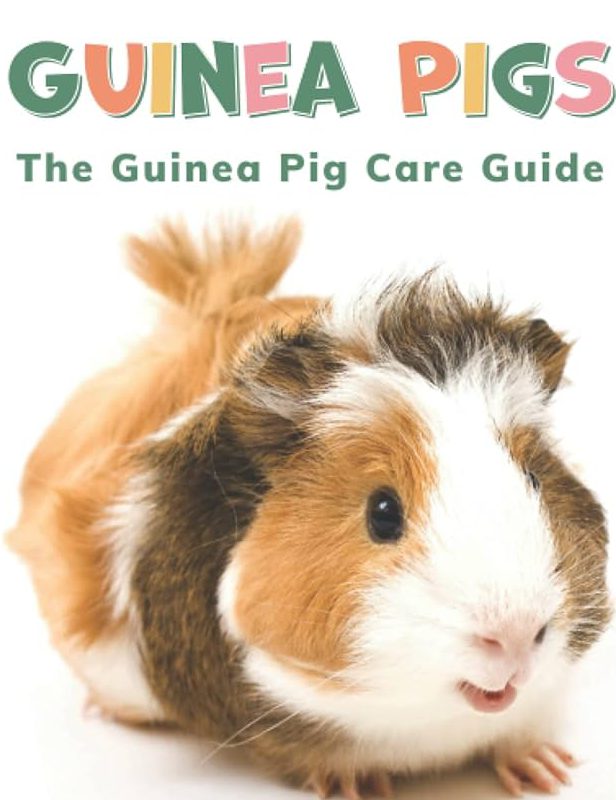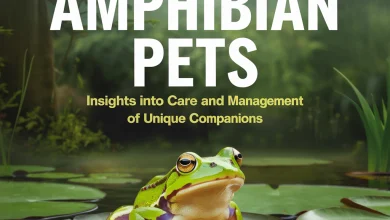Guinea Pigs: A Comprehensive Guide to Caring for These Adorable Pets

Guinea pigs, also known as cavies, are some of the most popular small pets around the world. Their friendly nature, low-maintenance care, and adorable appearance make them great companions for families, first-time pet owners, and children. If you’re considering bringing a guinea pig into your home, here’s everything you need to know about keeping them healthy, happy, and thriving.
1. Why Guinea Pigs Make Great Pets
Guinea pigs are gentle, social creatures that are easy to care for and offer companionship for years. Here’s why they make excellent pets:
- Friendly and Social: Guinea pigs are known for their gentle temperament and friendliness. They enjoy interacting with humans and can even learn to recognize their owners’ voices and respond to them.
- Low Maintenance: Compared to some other pets, guinea pigs require relatively simple care. As long as they are provided with food, fresh water, and a clean living space, they are easy to maintain.
- Live in Groups: Guinea pigs are social animals that thrive when living in pairs or small groups. Keeping more than one guinea pig will ensure they have constant companionship, reducing loneliness and promoting happiness.
- Long Lifespan: With proper care, guinea pigs can live between 5-7 years, making them a long-term commitment and rewarding companions.
2. Choosing the Right Guinea Pig
When selecting a guinea pig, it’s important to consider both their breed and personality. There are several different breeds of guinea pigs, each with its own unique traits:
- Abyssinian: Known for their rosette-patterned fur, Abyssinians are active, energetic, and playful.
- American: The most common guinea pig breed, Americans have short, smooth fur and are known for their friendly and easy-going nature.
- Peruvian: With their long, flowing hair, Peruvian guinea pigs are stunning but require more grooming than short-haired breeds.
- Teddy: These guinea pigs have short, dense, and fuzzy fur, giving them a teddy bear-like appearance. They are low-maintenance and make great pets.
When choosing a guinea pig, opt for one that is alert, curious, and active. Avoid guinea pigs that appear lethargic or have signs of illness, such as nasal discharge, sneezing, or patchy fur.
3. Setting Up a Guinea Pig-Friendly Habitat
Guinea pigs need a spacious and comfortable environment to thrive. Here’s how to set up the perfect habitat:
- Cage Size: Guinea pigs require ample space to move around, so a cage of at least 7.5 square feet is recommended for two guinea pigs. A larger cage will encourage more exercise and exploration.
- Bedding: Use soft, absorbent bedding such as paper-based bedding or aspen shavings. Avoid cedar or pine shavings, as they can release harmful fumes.
- Hideouts: Provide hiding spots, such as tunnels or small houses, where your guinea pig can retreat and feel safe. They are naturally prey animals and appreciate places to hide.
- Toys and Enrichment: Guinea pigs love to chew, so provide them with chew toys, hay, and tunnels to keep them mentally stimulated and prevent boredom.
4. Feeding Your Guinea Pig
A healthy diet is essential for your guinea pig’s well-being. Here’s what you should include in their daily diet:
- Hay: Fresh hay is the most important part of a guinea pig’s diet, providing fiber to aid digestion and keep their teeth in check. Offer unlimited amounts of hay, such as timothy or orchard grass, every day.
- Pellets: Supplement their diet with guinea pig-specific pellets that contain added vitamin C, which is crucial for their health.
- Fresh Vegetables: Guinea pigs love fresh vegetables! Offer leafy greens like romaine lettuce, parsley, and kale daily. Other vegetables like carrots, bell peppers, and cucumber can also be given occasionally.
- Water: Make sure your guinea pig always has access to fresh, clean water in a sipper bottle or a sturdy dish.
Avoid feeding guinea pigs iceberg lettuce, sugary foods, or foods high in calcium, as they can lead to health issues.
5. Handling and Socializing Your Guinea Pig
Guinea pigs are gentle and typically enjoy being handled, but it’s important to approach them correctly:
- Gentle Handling: When picking up your guinea pig, scoop them up gently with both hands, supporting their belly and back legs. Avoid sudden movements, as this can startle them.
- Social Interaction: Spend time with your guinea pig daily to build trust. Speak softly and offer treats to help them feel comfortable in your presence. Over time, your guinea pig will become more confident and enjoy spending time with you.
- Group Living: As social animals, guinea pigs thrive in pairs or small groups. Same-sex pairs or neutered males with females work well together. Make sure to introduce them gradually if they aren’t from the same litter.
6. Common Health Issues in Guinea Pigs
While guinea pigs are generally healthy animals, they can develop health problems if not properly cared for. Here are a few common issues:
- Vitamin C Deficiency: Guinea pigs cannot produce their own vitamin C, so they need it from their diet. Signs of deficiency include lethargy, weight loss, and swollen joints. Ensure their diet contains enough vitamin C-rich foods and supplements if necessary.
- Respiratory Infections: Guinea pigs are prone to respiratory infections if they are exposed to drafts or live in damp conditions. Symptoms include sneezing, wheezing, and discharge from the nose or eyes.
- Overgrown Teeth: Guinea pigs’ teeth continuously grow, so they need plenty of hay and chew toys to keep them trimmed. Overgrown teeth can cause eating difficulties and pain.
- Parasites: Mites or lice can sometimes affect guinea pigs, causing itching, hair loss, and skin irritation. Regular grooming and vet check-ups can help prevent these issues.
7. Fun Facts About Guinea Pigs
- Popcorning: Guinea pigs often express happiness by jumping and running in a behavior known as “popcorning.” It’s a sign they’re excited and enjoying life!
- Constant Communication: Guinea pigs are very vocal pets, making a range of sounds, including purring, squeaking, and wheeking. Each sound has a specific meaning, from hunger to happiness.
- Four Toes: Unlike most animals with five toes, guinea pigs have only four toes on their front feet and three on their back feet.
Conclusion Guinea pigs are wonderful pets that bring joy and companionship to any household. With their friendly nature, low-maintenance care, and adorable personalities, they are a great choice for both children and adults. By providing a spacious, clean environment, a healthy diet, and plenty of social interaction, you’ll ensure that your guinea pig lives a long, happy life as part of your family.



